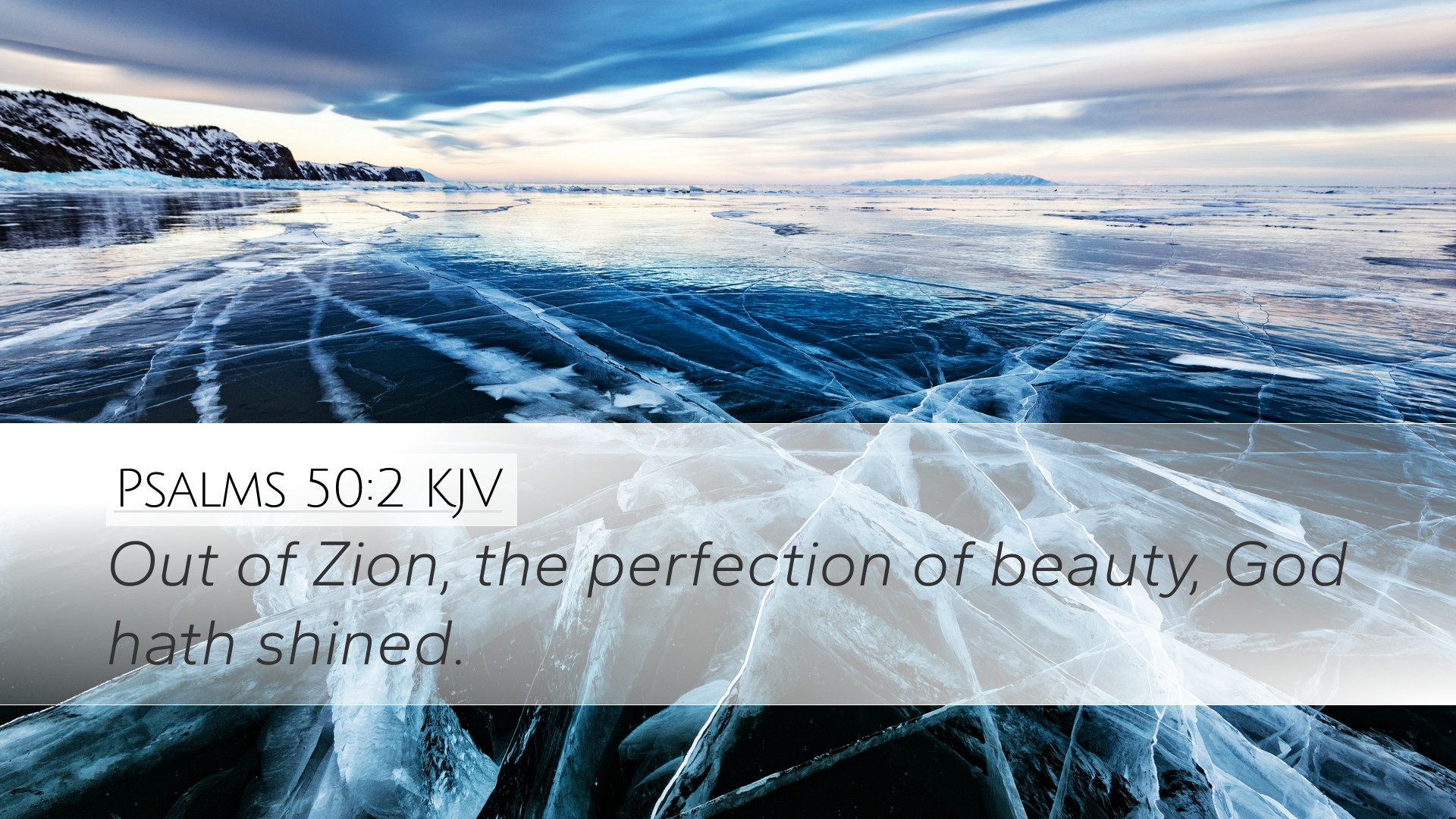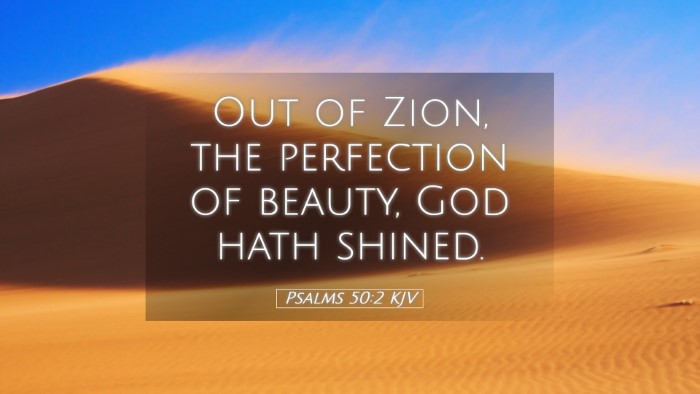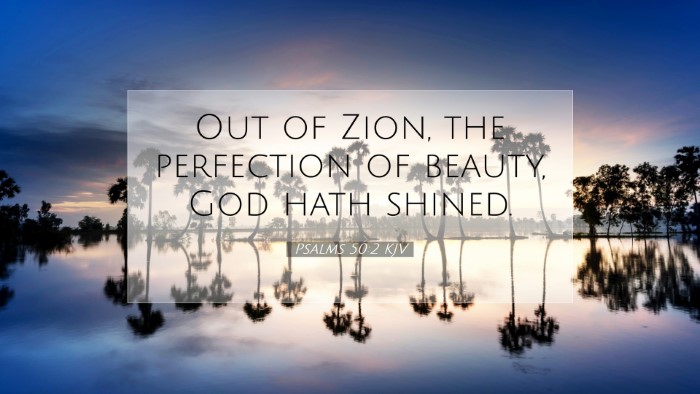Psalms 50:2 - Commentary Summary
The verse reads, "Out of Zion, the perfection of beauty, God hath shined." It presents a profound declaration regarding the revelation of God's glory and beauty, particularly through the imagery associated with Zion, the city of God.
Context and Background
Psalms 50 stands as a powerful call to the people, underscoring the themes of divine judgment and the glory of God. The psalm addresses Israel in a time of spiritual complacency, providing an opportunity for self-examination and repentance.
Interpretation of Zion
Zion holds a central place in the Old Testament, often symbolizing the dwelling place of God and representing His covenant with Israel. As noted by Matthew Henry, it is not merely a geographical location but signifies the congregation of God’s people, the focal point of His glorious presence.
- Divine residence: God's choice of Zion as His dwelling reflects His sovereignty and favor towards His people.
- Symbol of beauty: This beauty is further amplified through the relationship between God and His people, wherein Zion transforms into the "perfection of beauty."
The Perfection of Beauty
The term “perfection of beauty” emphasizes God’s attributes and the splendor of His presence. Albert Barnes remarks that this perfection is evident in the creation, character, and redemptive plan of God, which calls all people to recognize His unmatched excellence.
- Creation: The beauty of nature unveils God's artistic hand, calling believers to appreciate the magnificence of His work.
- Character of God: His holiness, justice, and love coalesce into a perfection that humanity strives to emulate.
- Redemptive beauty: The plan of salvation reveals the depth of divine love and grace, showcasing how God interacts with His creation.
God’s Revelation
God’s shining forth from Zion signifies His active engagement with the world. According to Adam Clarke, this act of shining is not a passive display; it encapsulates His initiative in revealing truth, offering guidance, and calling individuals to a deeper relationship with Him.
- Illumination: The light of God serves to dispel darkness, both in personal lives and in the broader societal context.
- Call to action: This illumination invites response from humanity to acknowledge God’s glory and to walk in accordance with His will.
Theological Implications
This verse communicates critical theological truths that resonate across the ages, providing insight applicable to modern faith practice.
- God’s Sovereignty: The acknowledgment of Zion as a symbol of divine beauty reminds congregations of God’s unchanging nature amidst cultural and spiritual shifts.
- Human Responsibility: The call to respond to God’s revelation emphasizes the active role believers play in pursuing holiness and reflecting God’s beauty in their lives.
- Interconnectedness: The verse implies a communal relationship with God; Zion is not just a place but a gathering of believers who collectively bear witness to God's glory.
Encouragement for Believers
Pastors and theologians are encouraged to foster an understanding of how God’s beauty can be manifested in their lives and communities. The importance of self-reflection, community engagement, and recognition of God’s persistent presence are vital to advancing the message of Psalm 50:2.
As they reflect on the beauty of God revealed through both nature and scripture, believers are called to elevate their worship and holiness, driving transformation in individual hearts and corporate worship.
Conclusion
Psalms 50:2, as commented upon by historical theologians, lays a foundational understanding of God's glory shining forth from Zion. It challenges the reader to deeply contemplate the implications of God’s character, the beauty of His presence, and the responsibility of reflecting this glory in a world that often walks in darkness.


